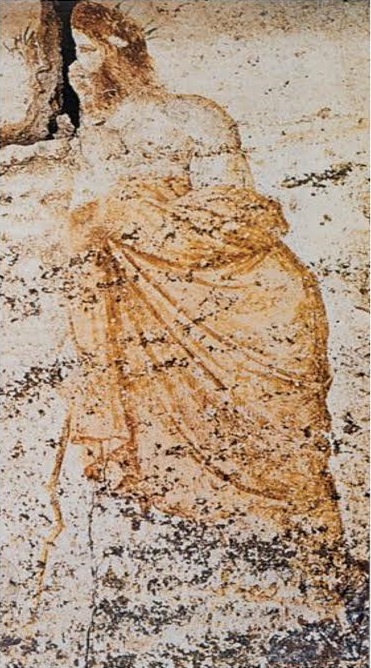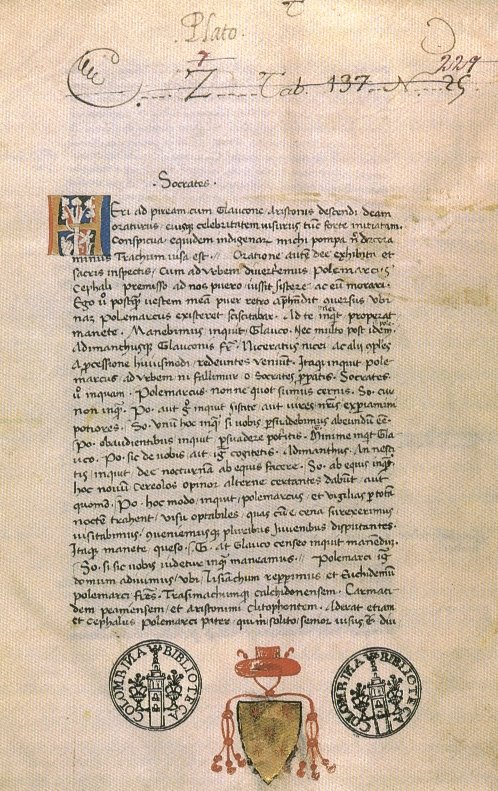|
Divine Judgement
Divine judgment means the judgment of God or other supreme beings within a religion. Ancient beliefs In ancient Sumerian religion, the sun-god Utu and his twin sister Inanna were believed to be the enforcers of divine justice. Utu, as the god of the sun, was believed to see all things that happened during the day and Inanna was believed to hunt down and punish those who had committed acts of transgression. After she was raped in her sleep by the gardener Shukaletuda, she unleashed a series of plagues upon the whole world before tracking him down and killing him in the mountains. In another story, she hunted down the old bandit woman Bilulu, who had murdered her husband Dumuzid the Shepherd, Dumuzid, and turned her into a waterskin. The Sumerians, as well as later Mesopotamian peoples, believed that all mortals went to the same afterlife: Kur, a cold, dark, cavern deep beneath the earth. Kur was miserable for all people and a person's actions during life had no impact whats ... [...More Info...] [...Related Items...] OR: [Wikipedia] [Google] [Baidu] |
Michelangelo Buonarroti 004
Michelangelo di Lodovico Buonarroti Simoni (; 6 March 1475 – 18 February 1564), known as Michelangelo (), was an Italian sculptor, painter, architect, and poet of the High Renaissance. Born in the Republic of Florence, his work was inspired by models from classical antiquity and had a lasting influence on Western art. Michelangelo's creative abilities and mastery in a range of artistic arenas define him as an archetypal Renaissance man, along with his rival and elder contemporary, Leonardo da Vinci. Given the sheer volume of surviving correspondence, sketches, and reminiscences, Michelangelo is one of the best-documented artists of the 16th century. He was lauded by contemporary biographers as the most accomplished artist of his era. Michelangelo achieved fame early; two of his best-known works, the ''Pietà'' and ''David'', were sculpted before the age of thirty. Although he did not consider himself a painter, Michelangelo created two of the most influential frescoes i ... [...More Info...] [...Related Items...] OR: [Wikipedia] [Google] [Baidu] |
Aeacus
Aeacus (; also spelled Eacus; Ancient Greek: Αἰακός) was a mythological king of the island of Aegina in the Saronic Gulf. He was a son of Zeus and the nymph Aegina, and the father of the heroes Peleus and Telamon. According to legend, he was famous for his justice, and after he died he became one of the three judges in Hades alongside Minos and Rhadamanthos. In another story, he assisted Poseidon and Apollo in building the walls of Troy. He had sanctuaries in Athens and Aegina, and the Aeginetan festival of the Aeacea (Αἰάκεια) was celebrated in his honour. Family Aeacus was the son of Zeus by Aegina, a daughter of the river-god Asopus, and thus, brother of Damocrateia. In some accounts, his mother was Europa and thus possible brother to Minos, Rhadamanthus and Sarpedon. He was the father of Peleus, Telamon and Phocus and was the grandfather of the Trojan war warriors Achilles and Telemonian Ajax. In some accounts, Aeacus had a daughter called Alcima ... [...More Info...] [...Related Items...] OR: [Wikipedia] [Google] [Baidu] |
Orphic Religion
Orphism (more rarely Orphicism; grc, Ὀρφικά, Orphiká) is the name given to a set of religious beliefs and practices originating in the ancient Greek and Hellenistic world, associated with literature ascribed to the mythical poet Orpheus, who descended into the Greek underworld and returned. This type of journey is called a katabasis and is the basis of a several hero worships and journeys. Orphics revered Dionysus (who once descended into the Underworld and returned) and Persephone (who annually descended into the Underworld for a season and then returned). Orphism has been described as a reform of the earlier Dionysian religion, involving a re-interpretation or re-reading of the myth of Dionysus and a re-ordering of Hesiod's ''Theogony'', based in part on pre-Socratic philosophy. The central focus of Orphism is the suffering and death of the god Dionysus at the hands of the Titans, which forms the basis of Orphism's central myth. According to this myth, the infant Dion ... [...More Info...] [...Related Items...] OR: [Wikipedia] [Google] [Baidu] |
Rhadamanthys
In Greek mythology, Rhadamanthus () or Rhadamanthys ( grc, Ῥαδάμανθυς) was a wise king of Crete. As the son of Zeus and Europa he was considered a demigod. His name means "showing stern and inflexible judgement". He later became one of the judges of the dead and an important figure in Greek mythology. Family Rhadamanthus was, according to mythology, the son of Zeus and Europa and brother to Sarpedon and Minos (also a king and later a judge of the dead). Together with his brother, Rhadamanthus was raised by Asterion, their stepfather. He had two sons, Gortys (associated with Gortyn, Crete) and Erythrus (founder of Erythrae). Other sources (e.g. Plutarch, ''Theseus'' 20) credit Rhadamanthys rather than Dionysus as the husband of Ariadne, and the father of Oenopion, Staphylus and Thoas. In this account, Ariadne was the daughter of Minos, Rhadamanthys' brother; another Ariadne was the daughter of Minos's grandson and namesake, who features in Theseus's legend and ... [...More Info...] [...Related Items...] OR: [Wikipedia] [Google] [Baidu] |
Republic (Plato)
The ''Republic'' ( grc-gre, Πολῑτείᾱ, Politeia; ) is a Socratic dialogue, authored by Plato around 375 BCE, concerning justice (), the order and character of the just city-state, and the just man. It is Plato's best-known work, and one of the world's most influential works of philosophy and political theory, both intellectually and historically. In the dialogue, Socrates discusses the meaning of justice and whether the just man is happier than the unjust man with various Athenians and foreigners.In ancient times, the book was alternately titled ''On Justice'' (not to be confused with the spurious dialogue of the same name). They consider the natures of existing regimes and then propose a series of different, hypothetical cities in comparison, culminating in Kallipolis (Καλλίπολις), a utopian city-state ruled by a philosopher-king. They also discuss ageing, love, theory of forms, the immortality of the soul, and the role of the philosopher and of poe ... [...More Info...] [...Related Items...] OR: [Wikipedia] [Google] [Baidu] |
Myth Of Er
The Myth of Er is a legend that concludes Plato's ''Republic'' (10.614–10.621). The story includes an account of the cosmos and the afterlife that greatly influenced religious, philosophical, and scientific thought for many centuries. The story begins as a man named Er (; grc-gre, Ἤρ, ''gen''.: ), son of Armenios (), of Pamphylia dies in battle. When the bodies of those who died in the battle are collected, ten days after his death, Er remains undecomposed. Two days later he revives on his funeral-pyre and tells others of his journey in the afterlife, including an account of reincarnation and the celestial spheres of the astral plane. The tale includes the idea that moral people are rewarded and immoral people punished after death. Although called the Myth of Er, the word "myth" means "word, speech, account", rather than the modern meaning. The word is used at the end when Socrates explains that because Er did not drink the waters of Lethe, the account (''mythos'' in Greek) ... [...More Info...] [...Related Items...] OR: [Wikipedia] [Google] [Baidu] |
Plato
Plato ( ; grc-gre, Πλάτων ; 428/427 or 424/423 – 348/347 BC) was a Greek philosopher born in Athens during the Classical period in Ancient Greece. He founded the Platonist school of thought and the Academy, the first institution of higher learning on the European continent. Along with his teacher, Socrates, and his student, Aristotle, Plato is a central figure in the history of Ancient Greek philosophy and the Western and Middle Eastern philosophies descended from it. He has also shaped religion and spirituality. The so-called neoplatonism of his interpreter Plotinus greatly influenced both Christianity (through Church Fathers such as Augustine) and Islamic philosophy (through e.g. Al-Farabi). In modern times, Friedrich Nietzsche diagnosed Western culture as growing in the shadow of Plato (famously calling Christianity "Platonism for the masses"), while Alfred North Whitehead famously said: "the safest general characterization of the European philosophical tra ... [...More Info...] [...Related Items...] OR: [Wikipedia] [Google] [Baidu] |
Crete
Crete ( el, Κρήτη, translit=, Modern: , Ancient: ) is the largest and most populous of the Greek islands, the 88th largest island in the world and the fifth largest island in the Mediterranean Sea, after Sicily, Sardinia, Cyprus, and Corsica. Crete rests about south of the Greek mainland, and about southwest of Anatolia. Crete has an area of and a coastline of 1,046 km (650 mi). It bounds the southern border of the Aegean Sea, with the Sea of Crete (or North Cretan Sea) to the north and the Libyan Sea (or South Cretan Sea) to the south. Crete and a number of islands and islets that surround it constitute the Region of Crete ( el, Περιφέρεια Κρήτης, links=no), which is the southernmost of the 13 top-level administrative units of Greece, and the fifth most populous of Greece's regions. Its capital and largest city is Heraklion, on the north shore of the island. , the region had a population of 636,504. The Dodecanese are located to ... [...More Info...] [...Related Items...] OR: [Wikipedia] [Google] [Baidu] |
Zeus
Zeus or , , ; grc, Δῐός, ''Diós'', label= genitive Boeotian Aeolic and Laconian grc-dor, Δεύς, Deús ; grc, Δέος, ''Déos'', label= genitive el, Δίας, ''Días'' () is the sky and thunder god in ancient Greek religion, who rules as king of the gods on Mount Olympus. His name is cognate with the first element of his Roman equivalent Jupiter.''Larousse Desk Reference Encyclopedia'', The Book People, Haydock, 1995, p. 215. His mythology and powers are similar, though not identical, to those of Indo-European deities such as Jupiter, Perkūnas, Perun, Indra, Dyaus, and Zojz. Entry: "Dyaus" Zeus is the child of Cronus and Rhea, the youngest of his siblings to be born, though sometimes reckoned the eldest as the others required disgorging from Cronus's stomach. In most traditions, he is married to Hera, by whom he is usually said to have fathered Ares, Eileithyia, Hebe, and Hephaestus. At the oracle of Dodona, his consort was said to be ... [...More Info...] [...Related Items...] OR: [Wikipedia] [Google] [Baidu] |
Minos
In Greek mythology, Minos (; grc-gre, Μίνως, ) was a King of Crete, son of Zeus and Europa. Every nine years, he made King Aegeus pick seven young boys and seven young girls to be sent to Daedalus's creation, the labyrinth, to be eaten by the Minotaur. After his death, Minos became a judge of the dead in the underworld. The Minoan civilization of Crete was named after him by the archaeologist Sir Arthur Evans. Etymology "Minos" is often interpreted as the Cretan word for "king", or, by a euhemerist interpretation, the name of a particular king that was subsequently used as a title. According to La Marle's reading of Linear A, which has been heavily criticised as arbitrary, we should read ''mwi-nu ro-ja'' (Minos the king) on a Linear A tablet. La Marle suggests that the name'' mwi-nu'' (Minos) is expected to mean 'ascetic' as Sanskrit ''muni'', and fits this explanation to the legend about Minos sometimes living in caves on Crete. The royal title ''ro-ja'' is rea ... [...More Info...] [...Related Items...] OR: [Wikipedia] [Google] [Baidu] |
Odyssey
The ''Odyssey'' (; grc, Ὀδύσσεια, Odýsseia, ) is one of two major ancient Greek epic poems attributed to Homer. It is one of the oldest extant works of literature still widely read by modern audiences. As with the '' Iliad'', the poem is divided into 24 books. It follows the Greek hero Odysseus, king of Ithaca, and his journey home after the Trojan War. After the war, which lasted ten years, his journey lasted for ten additional years, during which time he encountered many perils and all his crew mates were killed. In his absence, Odysseus was assumed dead, and his wife Penelope and son Telemachus had to contend with a group of unruly suitors who were competing for Penelope's hand in marriage. The ''Odyssey'' was originally composed in Homeric Greek in around the 8th or 7th century BCE and, by the mid-6th century BCE, had become part of the Greek literary canon. In antiquity, Homer's authorship of the poem was not questioned, but contemporary scholarship ... [...More Info...] [...Related Items...] OR: [Wikipedia] [Google] [Baidu] |
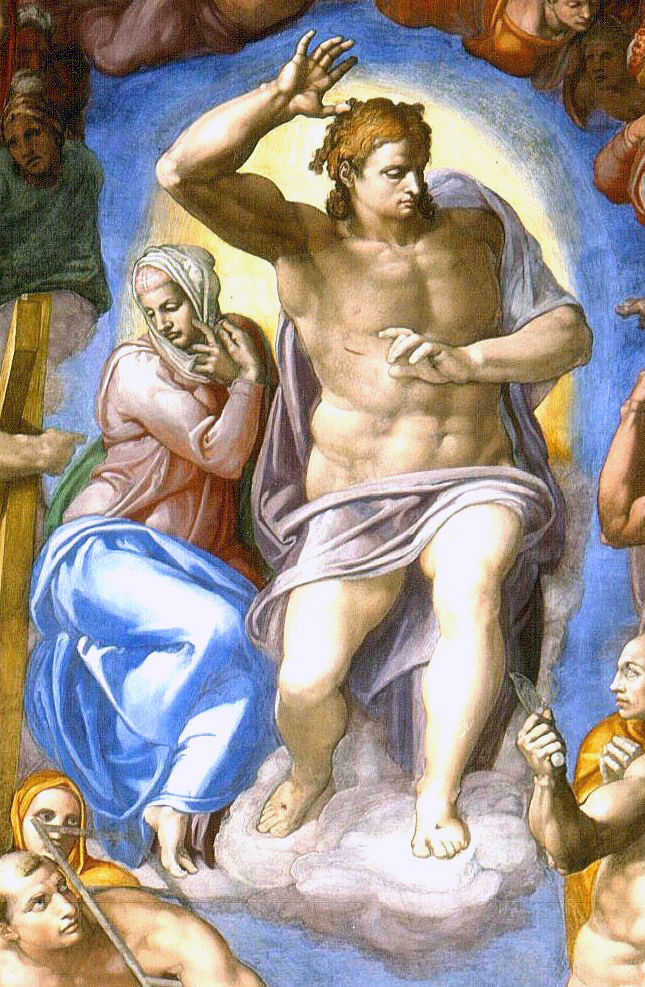
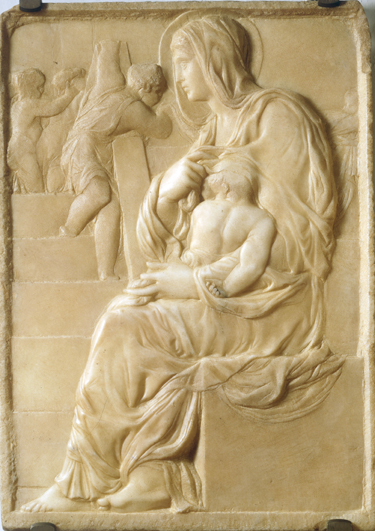
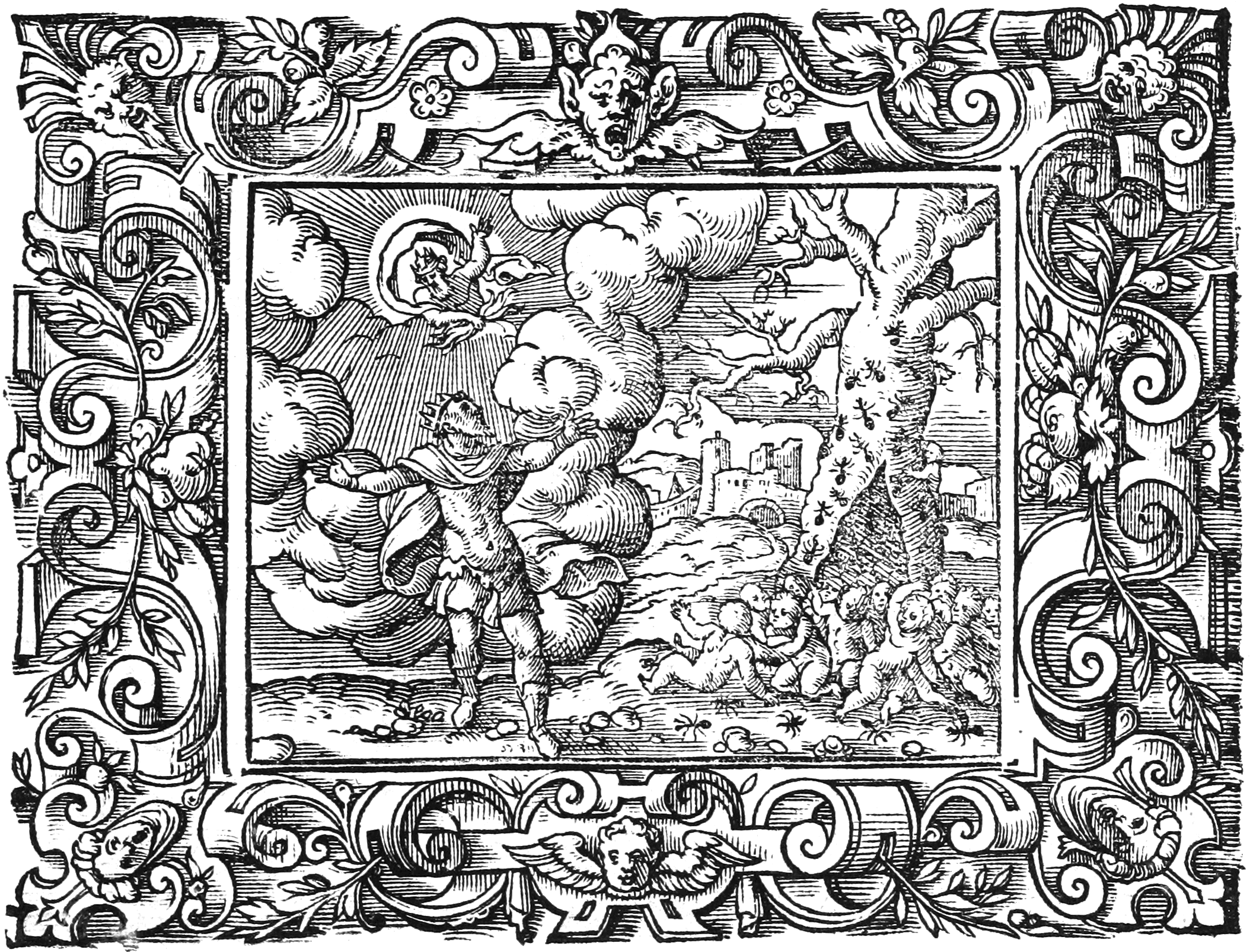
_-_Foto_G._Dall'Orto.jpg)
